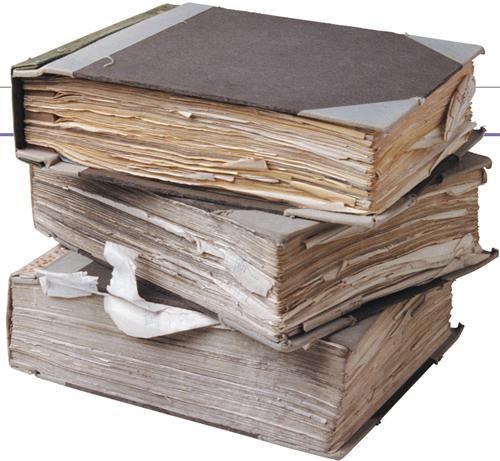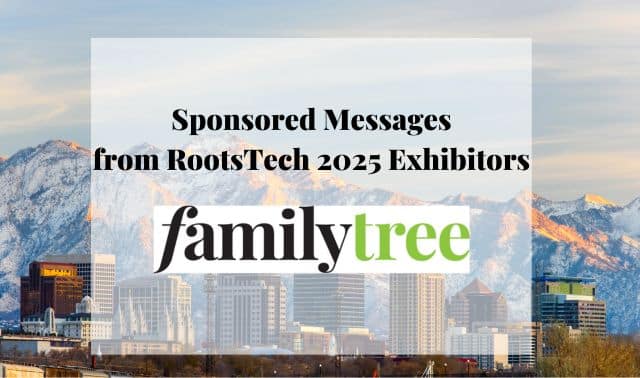Perhaps a rare published genealogy extends your family tree back to Colonial America. Or a 125-year-old county history recounts your great-great-grandparents’ struggles to homestead on the Great Plains. An old book, yellowing and long out of print, could hold the clue to a compelling family mystery — you just have to find it.
Although it’s fun scouring libraries and used-book stores in hopes of uncovering that rare gem, most of us don’t have easy access to large genealogical collections. And even when we do, locating an ancestor’s name in an unindexed publication can be nearly impossible. Ancestry.com <Ancestry.com > solves those problems with its online Family and Local Histories Collection (FLHC). A subscription costs no more than a few used books, and puts 20,000 tomes within clickable reach.
Borrowed material
The FLHC debuted last June with 20,000 books containing more than 75 million names. Nearly 8,000 family histories and 12,000-plus local histories were scanned to create the US-focused collection (it features some Canadian and British titles).
Ancestry.com acquired most of its materials from the Genealogy & Local History Collection at HeritageQuest Online (HQO) <www.heritagequestonline.com>. You already could access those digitized books through subscribing libraries and through Genealogy.com’s <www.genealogy.com> Family and Local Histories Collection, an HQO twin for consumers. To form its FLHC, Ancestry.com added 700 titles to HQO’s family and local history books — and continues to add two books per day. (It distributed the Genealogy & Local History Collection’s city directories and other sources throughout its other online offerings.)
Search tactics
Every word in the FLHC is indexed, so you can search the full text of thousands of books in a flash. The search screen has boxes for first name, last name and key-word(s). Click on the Best Matches tab to find variations on a name. Words entered in the keyword box may appear anywhere on the same page, but first and last names must appear within three words of each other. So if you search on Jonathan Hall, matches might include “Jonathan Hall,” “Hall Jonathan,” “Jonathan T. Hall” and “Jonathan and Mary (Hall) Gidley,” but not “Jonathan, son of Henry Hall.” First-and last-name matches aren’t necessarily names, so “in study hall, Jonathan read” would qualify as a match, even though hall isn’t a surname in this case.
Instead of searching the whole collection at once, you also can search or browse a single book. Publications are indexed by title words, such as names and places. To find books on the Hall family, for instance, click on the letter H under Volume Titles and then on the first three letters of the name, Hal. This brings up a list of 107 titles with keywords ranging from Halbert to Halsted. To search a book, click on its title.
HQO’s collection boasts more-powerful searches than Ancestry.com’s. On HQO, a keyword search for Timothy Murphy nearWorcester finds instances where TimothyMurphy appears within 10 words of Worcester. HQO also lets you search on subject terms, book titles and phrases. If you’re researching John Paul Jones, you might search on phrases surrounded by quotation marks, such as “John Paul Jones” or “John P. Jones.” Ancestry.com’s version doesn’t support phrase searches — you can search for first and last names, but you can’t add a middle name or middle initial.
Price check
So which is better — HQO’s collection or Ancestry.com’s? Both are terrific resources and excellent values. The FLHC includes all of HQO’s family and local history books, plus hundreds more titles. And Ancestry.com’s hit-highlighting feature makes finding your search terms on a book’s page a snap. On the other hand, HQO’s collection features superior search capabilities — phrase searching in particular — so you’re more likely to find relevant matches. It’s also easier to save multiple page images (as PDF files) from HQO — Ancestry.com lets you save only one page at a time, as either a PNG or BMP file.
A subscription to the FLHC costs $79.95 a year. To access HQO’s collection, you can subscribe to Genealogy.com’s Family and Local Histories Collection for $79.99 a year (MyFamily.com owns both Ancestry.com and Genealogy.com), or visit a local public library that subscribes to HQO — then you can use the material for free. Some libraries even allow patrons to access subscription services from their home computers.
Of course, nothing compares to the sheer pleasure of holding an old leather-bound county or family history. Gilt-edged pages and florid reminiscences can transport you back to the world of your ancestors. Undeniably less romantic, digitized versions of those antique tomes still can bring you the same family history insights via your computer — no travel required.
From the February 2005 Family Tree Magazine



